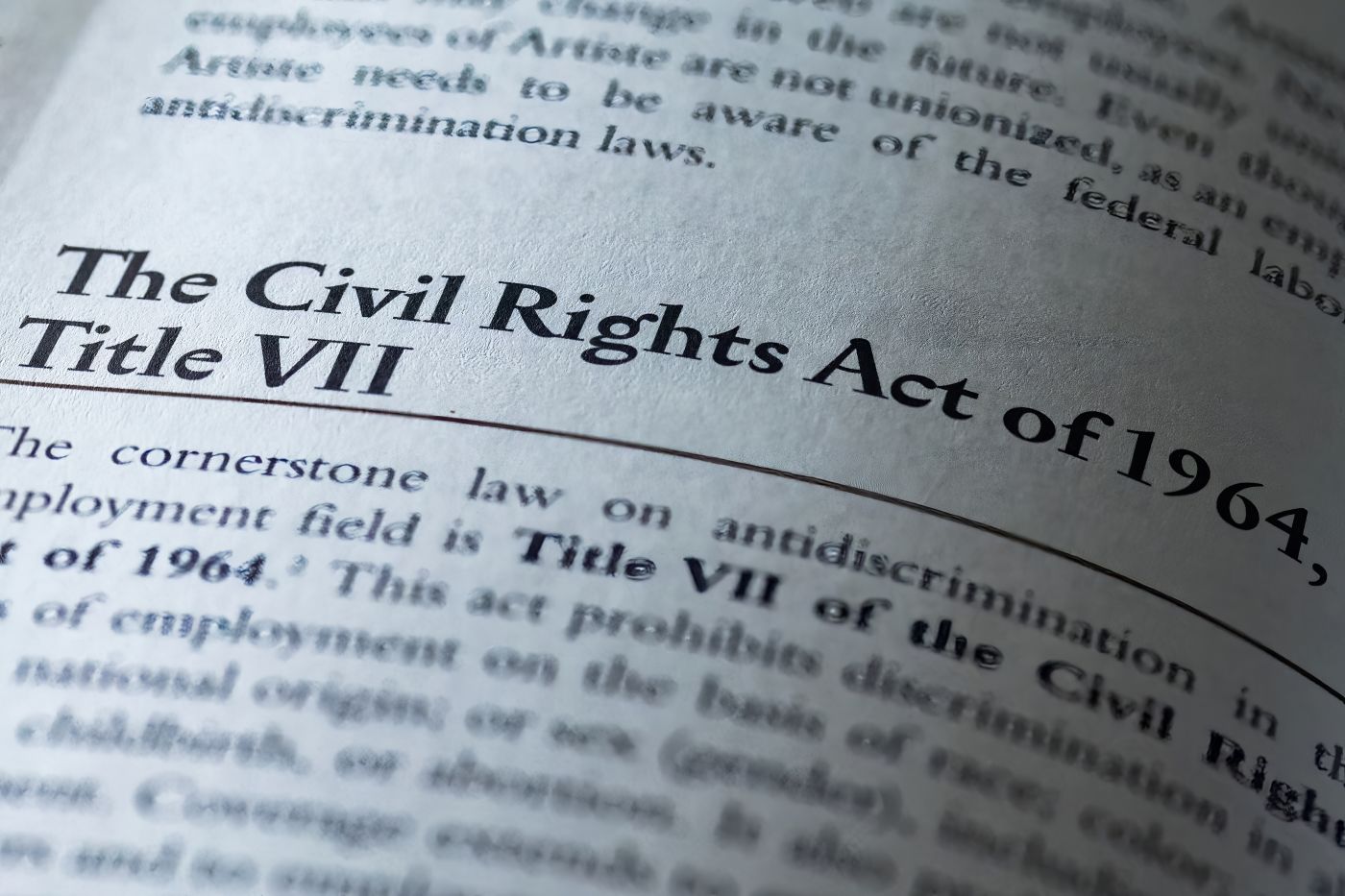
What Is Title VII?
Title VII, officially known as Title VII of the Civil Rights Act of 1964, is a federal law enacted to safeguard employees from discrimination based on their background or beliefs.
Under this law, it's illegal for you to be denied employment opportunities or treated unfairly based on perceived racial, religious, national, sexual, or religious characteristics. In other words, your employer can't make decisions about your employment based on stereotypes or assumptions related to these protected characteristics.
Dealing with any workplace issue can be challenging, especially when it involves your sense of self. Title VII is meant to help level the playing field and ensure that employees are treated fairly and equally in the workplace. Whether you have concerns about your employer or simply want to know your rights as an employee, we're here to unpack what you need to know.
Who Does Title VII Protect?
You might be wondering, "Does Title VII apply to me?" Well, if you work for an employer with 15 or more employees, or if you're employed by the federal government, an employment agency, or a labor organization, then yes, Title VII applies to you.
The law is enforced by the Equal Employment Opportunity Commission (EEOC), and its purpose is to foster a safe and inclusive work environment for everyone. If an employer breaches Title VII, that employer may face legal consequences and be ordered to pay damages to the affected employee.
Types of Discrimination Under Title VII
Title VII prohibits two types of discrimination: disparate treatment and disparate impact. Disparate treatment involves intentional discrimination, while disparate impact refers to seemingly neutral policies that disproportionately affect protected groups.
Examples of Disparate Treatment and Disparate Impact
Disparate Treatment refers to instances where an employer intentionally discriminates based on an individual's protected characteristics. For example, an employer refusing to promote a capable employee simply because of their religious beliefs is a clear case of disparate treatment. Similarly, if a job applicant is not hired because of their ethnic background, even though they are highly qualified for the job, that too amounts to disparate treatment.
Disparate Impact involves seemingly neutral policies or procedures that unintentionally lead to a discriminatory effect on a protected group. For instance, a company policy that requires all employees to work on Saturdays may disproportionately affect Jewish employees who observe a day of rest on Saturdays, thus creating a disparate impact. Similarly, a height and weight requirement may seem neutral, but it may disproportionately exclude women or individuals of certain ethnicities, thereby leading to disparate impact.
How to Report Discrimination and Ensure Protection Against Retaliation
If you ever experience discrimination or harassment at work, it's important to notify the perpetrator and your employer. Not doing so can affect a discrimination claim.
But don't worry, Title VII also protects you from retaliation for opposing discrimination, participating in an EEOC investigation, or making a discrimination claim.
What Is Retaliation?
Retaliation under Title VII refers to any adverse action taken by an employer against an employee due to their involvement in a protected activity. Protected activities can include filing a complaint of discrimination, participating in an EEOC investigation, or opposing discriminatory practices. For example, if an employee is demoted, fired, or given unfavorable assignments after filing a discrimination complaint, that is considered retaliation.
How an Attorney Can Help
Employment lawyers play an instrumental role in dealing with Title VII cases. They have a deep understanding of employment laws and are experienced in handling discrimination cases, making them well-equipped to guide you through the process.
An attorney can help you recognize if you've been a victim of discrimination and determine whether it's a violation of Title VII. They can assist in documenting the unlawful treatment and advise you on the best course of action.
Plus, should you decide to proceed with a complaint, an employment law attorney can handle the legal aspects, including filing charges with the EEOC, representing you during EEOC investigations, and, if necessary, litigating your case in court.
Moreover, a lawyer can help ensure that you are protected from any retaliation that might arise from filing a discrimination complaint. Their advocacy is crucial in ensuring that your rights are upheld and that you are treated fairly and justly in the workplace.
Looking for Representation? Contact an Employment Law Attorney
Understanding Title VII and its implications in the workplace is crucial for every employee. It's not only about knowing your rights but also about ensuring a safe, inclusive, and fair work environment for all. If you're facing workplace discrimination, remember, you're not alone.
At the law firm of James S. Brewer Attorney at Law, we're here to support you. We're dedicated to serving clients throughout New Haven, Bridgeport, and surrounding areas. Don't hesitate to reach out to an employment law attorney if you need legal assistance. Let's stand up for your rights together.
